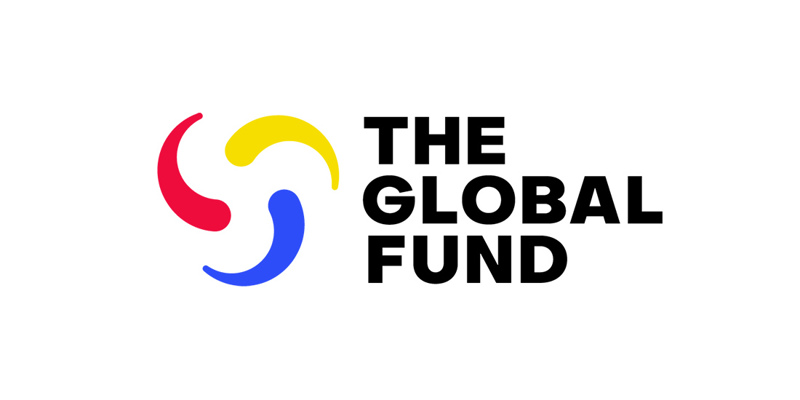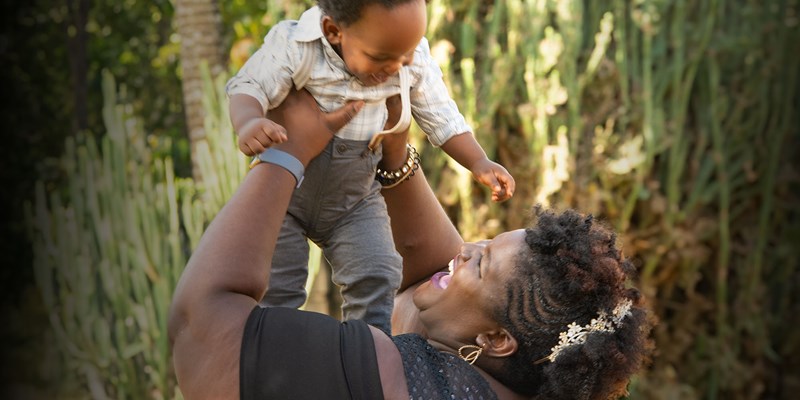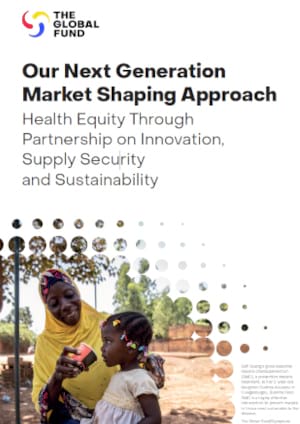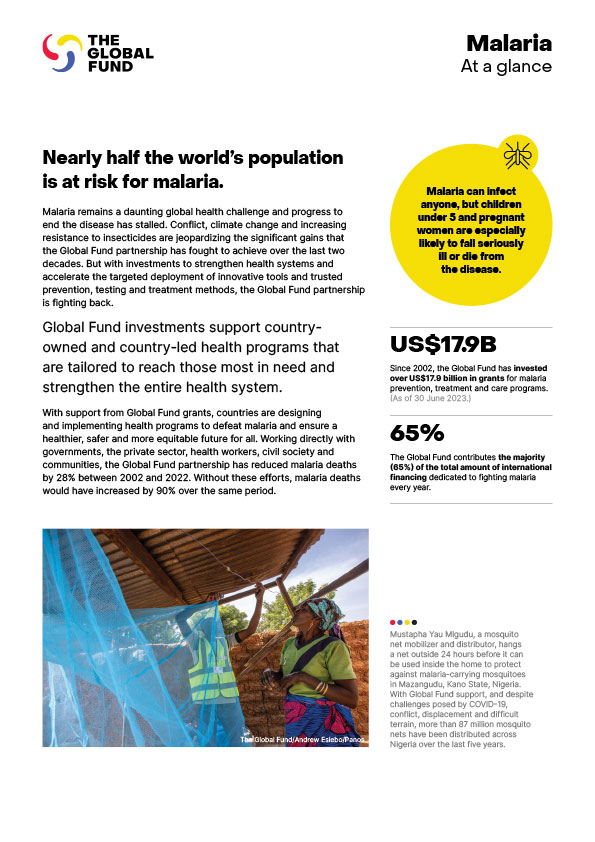COVID-19 Response in Malawi
20 December 2021
According to latest WHO figures, as of 13 December 2021, Malawi has recorded over 62,000 confirmed cases of COVID-19 with over 2,300 deaths since the first case was confirmed in April 2020. While a high proportion of cases have been seen in the urban centers of Lilongwe and Blantyre, the COVID-19 pandemic has affected all parts of the country. A third COVID-19 wave over the summer of 2021 resulted in an increased demand for oxygen supplies at health facilities. This wave affected a higher number of younger people aged 18-35, compared to the first and second waves of July and December 2020.
In 2021, through our COVID-19 Response Mechanism (C19RM), the Global Fund supported Malawi with over US$102.5 million to fight COVID-19, including for the provision of diagnostic tests and oxygen equipment and infrastructure. With these investments, Malawi built and renovated some of the health facilities and infrastructure needed to respond to the pandemic. C19RM funding also supported the recruitment of health care workers that were needed to alleviate the staff shortages at overwhelmed health facilities, and the procurement of personal protective equipment (PPE) to protect them.
One crucial area of focus has been to support Malawi to strengthen its laboratory and surveillance systems. A key component of the Government of Malawi’s National COVID-19 Response Plan is enhanced surveillance, epidemiological investigation, and contact tracing, with a particular focus on developing stronger COVID-19 sequencing capacities. In the past, the Ministry of Health has been dependent on laboratories located in South Africa for COVID-19 sequencing – a costly and time-consuming approach as the samples had to be sent there. With the support of partners, including the Global Fund, Africa Centres for Disease Control and Prevention (Africa CDC) and the University of Maryland Baltimore, the Government of Malawi is enhancing the National Reference Laboratory’s (NRL) capacities to enable it to undertake COVID-19 sequencing.
Using low throughput machines, the NRL was able to sequence its first batch of COVID-19 samples in June 2021, which meant that Malawi could initially reduce the number of samples sent to South Africa. The Ministry of Health is working to ensure that testing capacity is boosted so that all sequencing of COVID-19 samples can be undertaken in Malawi. To achieve this, the Ministry is prioritizing the procurement of additional sequencing machines with higher throughput capacities; training additional laboratory personnel in South Africa; enhancing capacities for the transportation of sequencing specimens from health facilities; renovating the molecular laboratory at the NRL to accommodate COVID-19 sequencing; and enhancing COVID-19 surveillance systems at the health facility level.
Malawi is also using C19RM funding to adapt HIV, TB and malaria programs to ensure service delivery and access throughout the COVID-19 pandemic. Some of these adaptations include introducing mobile HIV services for underserved populations, dispensing HIV medicines for multiple months at a time, testing for both TB and COVID-19 simultaneously, increasing TB testing capacity, and strengthening community-led risk communication and monitoring activities.
These investments contribute to strengthening systems for health and improving pandemic preparedness, so that Malawi can effectively respond to COVID-19 but also to other infectious diseases like HIV, TB and malaria.







